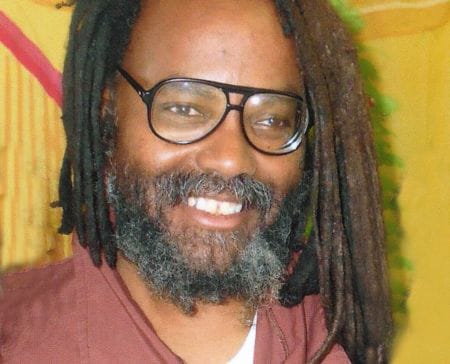
Before long I was on the phone with one of the producers, who grilled me on my take on Adegbile’s appointment and his connection to Mumia Abu-Jamal.
I said that I am part of Mumia’s legal team, that Adegbile was never part of the small group of lawyers and staff working on the Mumia case at the NAACP Legal Defense Fund, that Adegbile did not lobby for the Legal Defense Fund to take on the case, and that he simply happened to be working with the organization that had decided to take it on. I added that Fox should, however, explore why one of the most respected legal civil rights organizations in the nation, of Brown vs. Board of Education fame, would deem the case of Mumia Abu-Jamal important enough to take on.
Moreover, I added, the issue around which Adegbile is being attacked surrounds a federal appeal that challenged Mumia’s death sentence, not his conviction, which was pursued rabidly and illegally by prosecutor Joe McGill in a manner that desecrated the Constitution of the United States. The federal judges agreed with the brief, and the death sentence of this world-renowned journalist was commuted to life without parole.
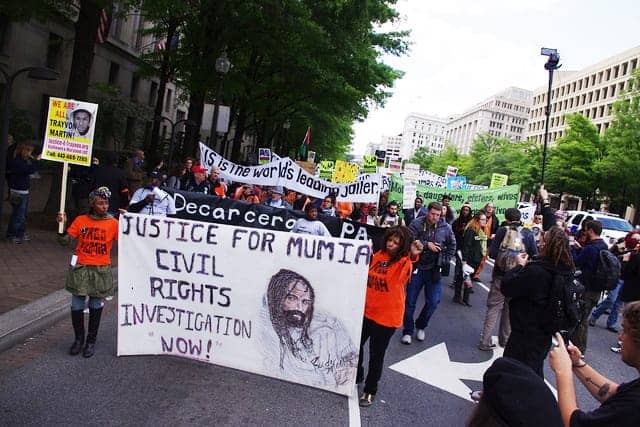
As the long history of Black criminalization in the U.S. demonstrates, just because a Black person is convicted doesn’t mean he/she is guilty. Ask The Innocence Project at the Benjamin N. Cardozo School of Law at Yeshiva University.
Back to Fox News. In classic Fox form, the interview with me would not be about the case or about the appointment of Adegbile. Hannity gave ample time to Katie Pavlich, who was representing the views of the prosecution and who was clearly committed to simply echoing its conclusions.
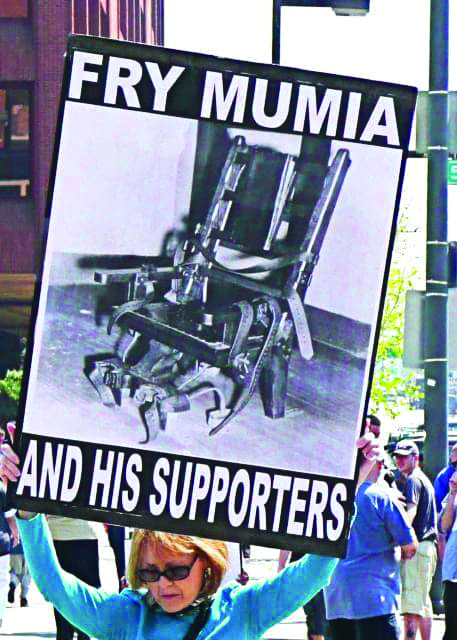
At the end of the segment, I wanted out of the studio immediately, got up to walk off the set and was stopped by producers because I was about to walk through the camera as Hannity introduced the next segment. Then, while I was standing there, I decided to stay a while longer to let Hannity have it when the cameras went down.
I told him that his crafty staging of inflammatory propaganda parading as political debate was cheapening a desperately needed public discussion in the U.S. and destroying the project of democracy on which it depends. Hannity’s is a false front for news, journalism and debate, in which the opposing viewpoint is rudely cut off and is then pummeled to the ground with a battery of lies.
True to its form, Fox News manipulated the facts of the case to depict Mumia as an unrepentant cop-killer. For example, Ms. Pavlich claimed that Mumia did not enter a not-guilty plea in court during the trial. In fact, Mumia’s attorney entered a not-guilty plea and later in the trial Mumia himself twice upheld his innocence.
But as the trial began, Mumia took a vow of silence in protest of prosecutorial misconduct – the failure of the prosecution to honor its pre-trial agreement to release to the defendant important photographs and records before the start of the trial. Mumia also took a vow of silence because he wished to be his own attorney and to make an opening statement to the court – all requirements of fair trial proceeding under the Constitution, but denied to Mumia Abu-Jamal.
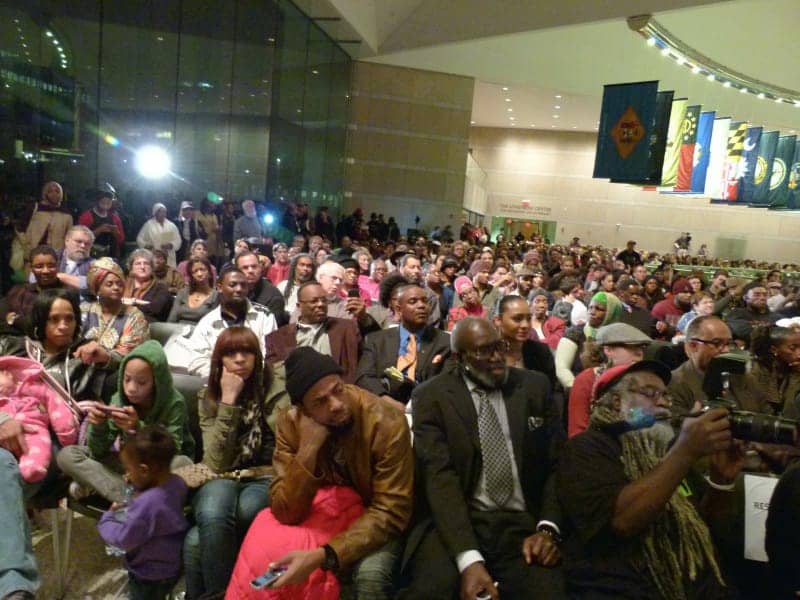
As I watched, I was reminded of a heart-wrenching interview I conducted a few years ago with Mumia’s sister, Lydia Barashango, who was dying of cancer. She told the film crew of “Justice on Trial: The Case of Mumia Abu-Jamal” that “justice for Maureen Faulkner is tied to finding out who killed Officer Daniel Faulkner. Mumia is not that person.”
Justice for Daniel Faulkner and justice for Mumia Abu-Jamal depend on an uncompromising commitment to facts, due process and truth; to date, that commitment has not been realized. As with so many other defendants, the courts failed Mumia. He was not tried by a jury of his peers, police officers tampered with evidence and the prosecution suppressed exculpatory evidence.
The most important and least known fact of the Abu-Jamal case is that a fourth person was present at the crime scene, and the prosecutor and the presiding judge repressed his presence at trial. Former TV Guide reporter and independent crimes-investigation journalist Patrick O’Connor argues convincingly in his book about the case, that that fourth person, Kenneth Freeman, killed Officer Faulkner.
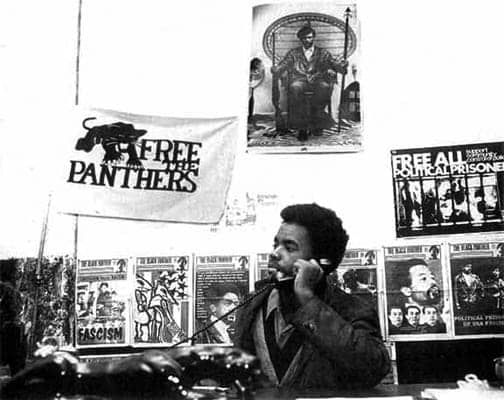
Sadly, despite the overwhelming evidence of innocence in this case, Mrs. Faulkner is denouncing Obama’s appointment of Adegbile and trying Mumia before the court of public opinion on the basis of his political affiliation with the Black Panther Party, which he joined when he was a 14-year-old. Incidentally, this was the same illegal strategy used at trial by prosecutor Joe McGill to secure the death penalty in Mumia’s case.
Deploying the language that has historically been used to silence those who fight against injustice – the language of McCarthyism – Mrs. Faulkner denounces Mumia as “a radical and a Black Panther.” But the First Amendment of the Constitution of the United States protects freedom of speech and association and also protects against the use of political affiliation as proof of a defendant’s guilt if it is not germane to the case.
Mrs. Faulkner’s life-long campaign against Mumia Abu-Jamal is fueled, yes, by pain, but also by a blind anger that has been nurtured, misdirected and manipulated by the Philadelphia Fraternal Order of Police (FOP). Her statements are, in part, a response to the new petition, launched by The Campaign to Bring Mumia Home that calls on the Department of Justice to support the release of Mumia Abu-Jamal. Our aim is to get a million signatures. Please help us reach that goal by forwarding the link to your networks.
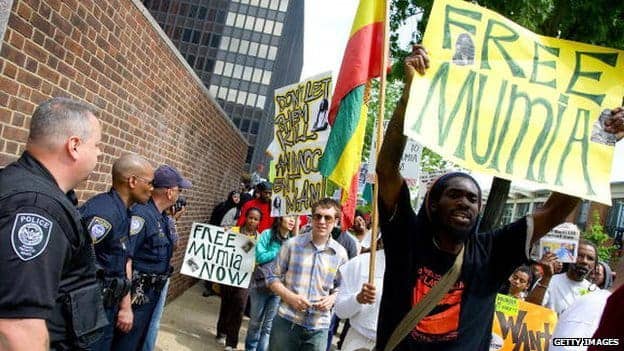
The problem with the appellate process is that following a series of regressive, states’ rights laws passed in the 1990s, such as the Anti-Terrorism and Effective Death Penalty Act of 1996, appellate judges are forced to accept the “factual” rulings of lower courts, without regard for the tampered and falsified evidence often manufactured by the police and relied upon by the lower courts.
Because the appellate process is stacked against Mumia Abu-Jamal and hundreds of thousands of other defendants, the only available route to justice amidst the crisis of mass incarceration and political imprisonment in the U.S. is open debate and discussion – precisely what Hannity and his friends at Fox are intent on crushing.
The new petition, launched by The Campaign to Bring Mumia Home that calls on the Department of Justice to support the release of Mumia Abu-Jamal. Our aim is to get a million signatures. Please help us reach that goal by forwarding the link to your networks.
Mumia is a present-day Scottsboro Boy, and we must demand that Pennsylvania reveal his innocence now, not 80 years later the way Alabama did with the Scottsboro Boys.
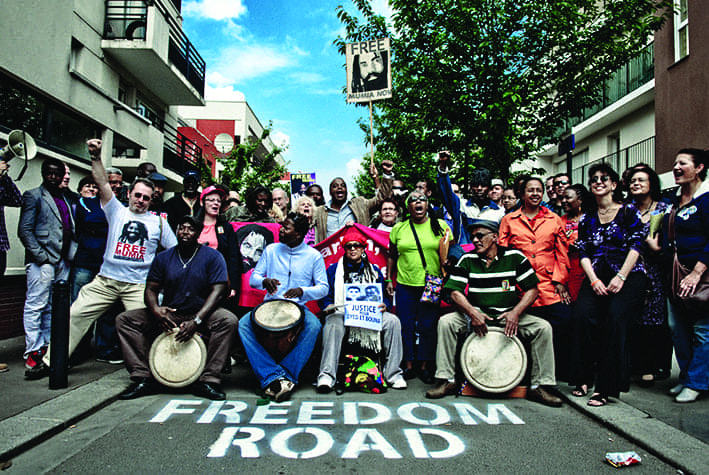
He feared that doing so might galvanize an international movement that would descend on his city and expose the manner in which the courts, politicians and the police conspired to silence and imprison this radical journalist who is arguably the Nelson Mandela of our time.
Victories like these are rare during downturns in struggle, but our victory in winning Mumia’s release from death row coincided with a shift in consciousness in the U.S. occasioned by the economic crisis that began in 2008, the execution of Troy Davis, the emergence of the Occupy Movement, the murder of Trayvon Martin, the struggle against Stop and Frisk and the emergence of a new, embryonic but growing movement against mass incarceration.
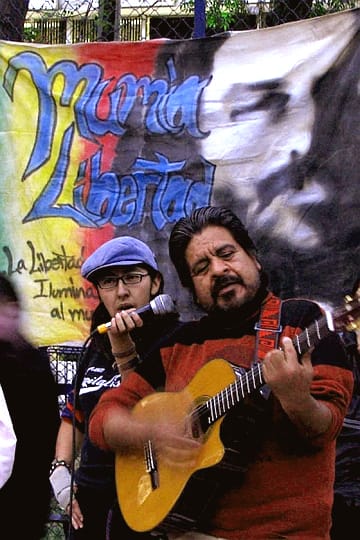
Like the struggle that freed Mandela, the fight to free Mumia is bound up in the struggle to build a better world.
For those who watched my interview with Fox News, this is what I would have said on Hannity if I hadn’t been interrupted. These are the talking points that will bring Mumia home:
1. Mumia is innocent.
2. On the night that Officer Faulkner was shot, there were four persons at the crime scene. But the prosecutor, Joe McGill, and the trial judge, Albert Sabo, concealed the presence at the crime scene of that fourth person at trial. In fact, the presence of that fourth person, the passenger in the Volkswagen which Officer Faulkner had stopped, was acknowledged by prosecutor Joe McGill in another trial that was happening concurrently, surrounding the same crime scene. This key, exculpatory evidence – that there was another person at the crime scene who was the passenger – was hidden from the defense and the jury. Why?
3. It is well documented, in declassified memos, that the Philadelphia police in consultation with COINTELPRO had for many years been trying to peg a crime on former Black Panther and muckraking radio journalist Mumia Abu-Jamal, whose reporting on police brutality, corruption in City Hall and the MOVE organization had long been a thorn in the side of the establishment. Now the Philadelphia police had their man and they were going to do everything in their power to frame him.

5. Because almost all the jurors that heard Mumia’s case were white, they believed the testimony of the police. A jury of Mumia’s peers would have known better. Shortly after Mumia’s trial, one third of the police officers involved in collecting evidence in his case were convicted of corruption and tampering with evidence to obtain a conviction.
Happening concurrently was also an investigation of the Philadelphia Police Department by the U.S. Department of Justice – the largest ever conducted of a police department in the United States. That investigation concluded that the level of corruption and tampering with evidence on the part of the Philadelphia police and its homicidal behavior against Black and Brown detainees “shocks the conscience.”
6. Upon arrival at the scene of the crime, the police who found Mumia on the ground with a bullet from Daniel Faulkner’s gun in his gut proceeded to beat Mumia to a pulp and throw him into a paddy wagon where they beat him up some more. Approximately an hour later, they drove him to the hospital and threw him on the ground at the entrance of the Emergency Room.
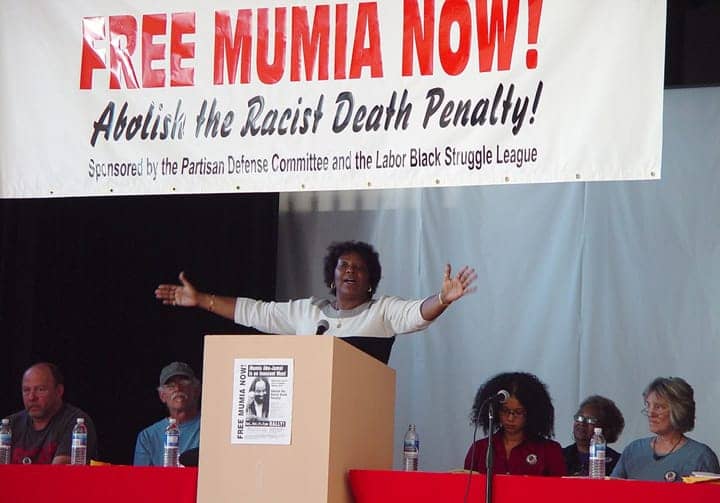
Dr. Coletta said that Mumia was barely conscious and in a state of shock, and that the trauma produced by Mumia’s bullet wound and the beating he had endured at the hands of the cops meant that medically, Mumia was incapable of speaking. In addition, the police report written on the night of the incident by the officer assigned to Mumia at the hospital, Gary Wakshul, states, “The Negro male made no comment.”
8. The first photographs taken of the crime scene were taken by a regularly published freelance photographer, Pedro Polakoff. He repeatedly called the police to give them those photographs, but the cops never responded. Polakoff assumed that Mumia was guilty and forgot about the issue.
In 2006 these photographs were discovered and studied by Dr. Michael Schiffman of Heidelberg University in Germany. The photos disprove the prosecution’s entire case theory.
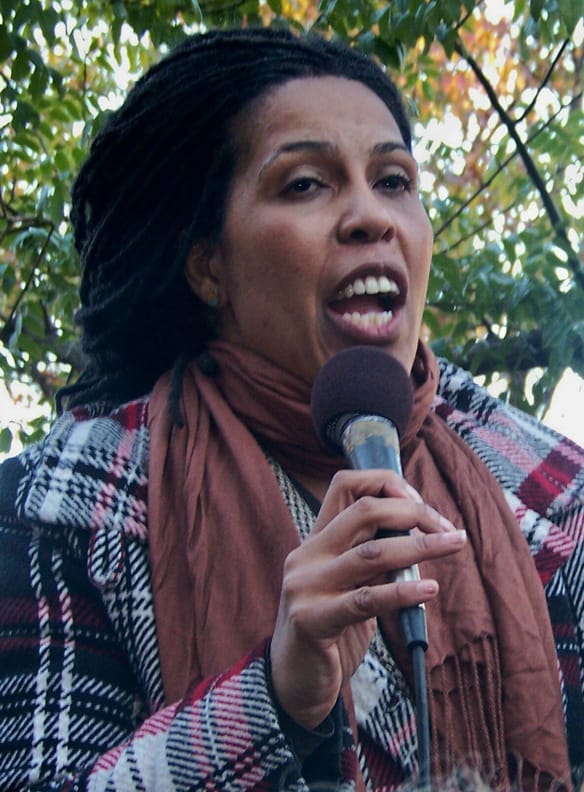
Most importantly, the Polakoff photos also point to the presence of a fourth person at the crime scene: Officer Faulkner’s hat is pictured resting on top of the Volkswagen on the side of the passenger seat, suggesting that he may have had a conversation with the passenger.
9. Exonerating evidence abounds in the case of Mumia Abu-Jamal. Because Mumia is known the world over for his commentaries and writings on inequality and because he has spent so much of his time in prison offering a radical critique and analysis of mass incarceration, a victory in Mumia’s case would open up a much larger conversation in the mainstream about the crisis of mass and political imprisonment in the U.S.
Johanna Fernandez is a professor of history at Baruch College (CUNY). Follow her on Twitter: www.twitter.com/JohannaFernand. This story first appeared in the Huffington Post.
Johanna’s note: BRING MUMIA HOME! We need a media strategy and a campaign in the streets, fast! Please forward this link to your contacts: http://www.indiegogo.com/projects/60-for-mumia-s-60th-birthday. Make the “60 for Mumia’s 60th Birthday” campaign a success. Join the campaign to Bring Mumia Home. We need your help to build the campaign that will free Mumia Abu-Jamal.





